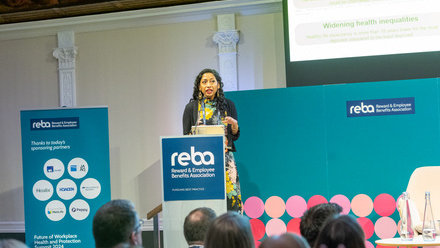How the digital revolution has changed reward for ever

They began with the launch of the iPhone. Later that year big data, cloud storage and open source software platforms emerged. Before 2007 had ended Amazon had launched the Kindle and Facebook and Twitter had gone global. We have been living through the biggest technological and social change since the Industrial Revolution.
The true significance of these events is still largely unnoticed. They were soon overshadowed by the great financial crash and there is no great physical transformation of the world around us. The technological breakthroughs were all based on the power of the tiny microchip. But they are more important than anything that has happened since 2007, including the financial crisis, Brexit and the election of Donald Trump.
Profound implications for employment
This digital revolution has profound implications for employment and the way people are rewarded. Jobs that involve simple pre-defined tasks are being reinvented or disappearing altogether. Even the lower-skilled customer service jobs that remain require relationship building and decision making skills. Jobs that don’t need these skills can be replaced by machines.
Reward management is particularly slow to adapt. Much of it still looks like the pay structure that operated for the Roman Army more than two thousand years ago. It assumes that employees are paid to follow orders, and that jobs still consist of task-based drudgery.
Too often pay is based on flawed concepts or rigid structures
In some organisations pay is based on rigid structures that have little connection with the work that people are actually doing. In others the flawed concept of market data is used, even though there is no such thing as a “market rate” for many jobs or for the skills and competencies of individual employees.
For most jobs in the digital age the attributes that individual employees bring to their work make a real difference to the outcomes. If two employees are doing the same job it is unlikely that they will achieve the same results. This needs to be recognised in their reward.
Changing relationship
The employment relationship is changing. There has been a shift in the balance of power towards the employee because they have access so much more information. They are more likely to be bamboozled by the salaries that appear in job advertisements and they are less likely to trust what their employers tell them.
Everyone is biased towards believing what they want to believe and employees’ perceptions of their reward can easily be led astray. It is also much easier to change jobs in a connected world, especially as employees are no longer tied into defined benefit pension schemes. Employee loyalty has become increasingly fragile.
The digital revolution has makes it more difficult to make decisions on reward, and once decisions have been made it is impossible to know whether they will achieve the desired objective. Salaries, bonuses and benefits are things that employers do to employees. They come from the outside and are “extrinsic” rewards. They are highly-visible, but are also short-term and unreliable.
A need to work in harmony
Extrinsic rewards contrast with intrinsic rewards. These come from fulfilling the psychological needs of employees. All employees have a need to be respected, to have control over how they do their work, to feel part of a social team and to be treated fairly. Intrinsic rewards are hidden away, but are long-lasting and dependable.
Extrinsic and intrinsic rewards need to work in harmony together. If employees believe they are being treated unfairly intrinsic reward is compromised. This can happen if a pay increase is less than they were expecting, or if there is any inconsistency between what employers say and what actually happens. If employers promise that individual contributions will be recognised they have to deliver on this. Otherwise employees will see this as a threat and become disengaged.
The challenge for reward leaders in the digital age is to understand the psychological impact of reward decisions. Employers need to pay the fairly and make sure reward is legally compliant and competitive. But they also need to understand how employees think about reward, how it supports their psychological needs and how it can be a threat if something goes wrong.
It’s not just about the money.
Daniel Hibbert is author of 'Thunder Cloud: Managing Reward in a Digital Age' and is also the opening keynote speaker at the Reward Leaders Forum on 27 April.






